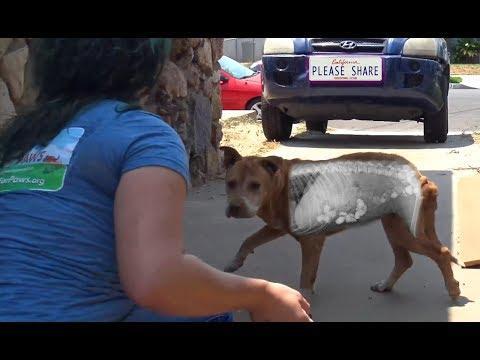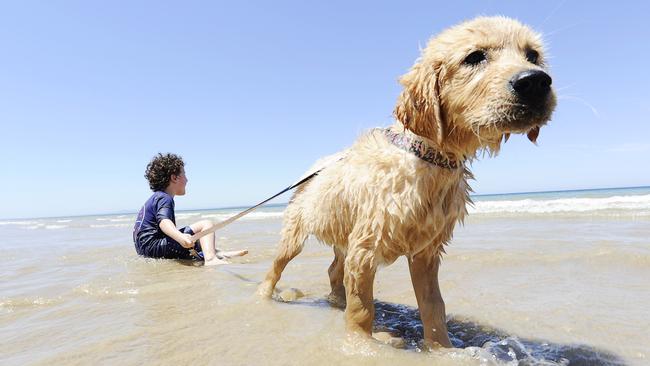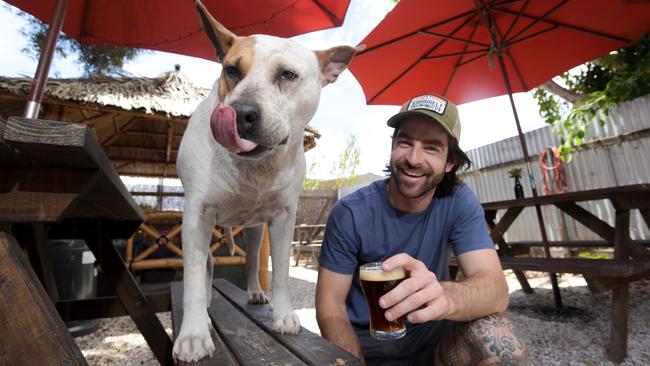I’ll call my dogs “fur babies” if I want, thanks
YOU may sneer about women who call their pets “fur babies” but our animals teach us more about humanity than many people do, writes Karen Brooks.

Rendezview
Don't miss out on the headlines from Rendezview. Followed categories will be added to My News.
IT doesn’t take Canadian pet insurance company, Trupanion’s recent survey to tell us what many Aussies already know: more than any other time in human history, pets are considered part of the family.
Not only is this shift in attitude marked by the amount of money Australians spend on our pets — more than $12 billion a year in 2016, up 42 per cent from 2013 — but the uptake in pet insurance, and the fact rental laws are changing/have changed to accommodate pet owners.
In Queensland, for example, 69 per cent of renters have dogs, 24 per cent cats. According to rent.com.au, more than 50,000 pets now have a resume.
But the paws and effect of this change is mostly evident in the nomenclature used to describe our beloved animals.
Whereas once we fondly referred to our pets by their names, type or breed, and ourselves as their “owners”, nowadays, it’s not uncommon to hear them described as “fur babies” or “fur kids” and owners calling themselves “pet parents”.

Prepared to spend more time and money on our fur babies, indulging in everything from day care, to nutritious, wholesome diets, grooming, holidays, exercise, to sitters and essential medical treatment, there’s concern from some quarters that the domestication of what were once wild animals is not only humanising them to their detriment, but turning owners into a pack of doggone losers, prone to making faux-paws about entrenched familial roles.
Often, when a news report, study or even a burst of adoration for a pet, grief, funny footage or an anecdote is shared on social media, someone is there to remind us, as one fur-ocious article on Popsugar.com did recently, that “your dog isn’t your baby” and calling him/her one is “an insult to moms everywhere”.
Another paw-ful diatribe appears on bluntmoms.com.
Gavin McInnes of TheRebel.media rants about women who call their dogs or other animals “babies”. He blames it on “brainwashing”, and says these women (because it’s only women, apparently) have replaced “the best thing about themselves with a stupid f--king dog.”
Is that catty or is he just barking mad?
As the loving mother of gorgeous human children and the delighted owner of many furbies, I have only one answer to such ridiculous ramblings: “Whatevfur”.
Even those without human children in their lives understand the differences, but why does that mean they have to spell it out or withhold their joy and affection in the furry creatures who return it a hundredfold in various ways? When they’re so purr-fect?
What’s so offensive or wrong about loving and caring for a (mostly) dependent creature? Why do some people get such a cattitude about those who spend their money on their dogs or cats, dress them up in ap-paw-ling outfits and lavish them with affection and attention?

Blogger Carol Bryant, fed up with being reminded endlessly that her dog is not her child wrote: “I am not anti-kid (she explains she’s childless by choice), I am pro-dog.” She adds she’s tired of defending herself for the usage of a word that demonstrates her dog is more than her property.
Bryant is not alone.
It’s estimated that there are more than 24 million pets in Australia. Dogs are the most popular, followed by cats, fish, birds and other small mammals and reptiles.
A report last year by the Australian Veterinary Association identified that 65 per cent of households with dogs and 66 per cent with cats viewed the animals as part of the family.
They rule the roost — including the cyber one.
After online snaps/video and stories of kids, pets are the most popular topic. Then there’s the commercial success of Grumpy Cat, or the “pupinfluencers”, Boo the Pomeranian and Doug the Pug to name a few. Celebrities on Instagram and elsewhere, these furbies have millions of followers, earning their parents a very decent living.
More often than not, debates about who makes the better pet — dogs or cats — will erupt with varying shades of seriousness and humour. Likewise, whether someone is a “cat person” or “dog” one carries conversations and connotations.
As the owner of many furbies — a labradoodle, two bichons, and four hilarious, adorable cats — I’m either a “crazy cat lady” or “pawsome”.
My cherished fur kids are part of my wonderful human family and bring so much joy, optimism, and unconditional love (and yes, expense, heartache and anxiety). Regarded as conduits for human interaction, you’re rarely alone with a pet and never lonely or judged.
British veterinarian and author, James Herriot once said: “I wish people would realise that animals are totally dependent on us, helpless, like children, a trust that is put upon us.”
The critics have it all wrong. We’re not humanising pets by calling them our fur babies and making them part of our families. On the contrary, as actor James Cromwell said: “Pets are humanising (us).”
Dr Karen Brooks is a honorary senior research fellow at the University of Queensland.


